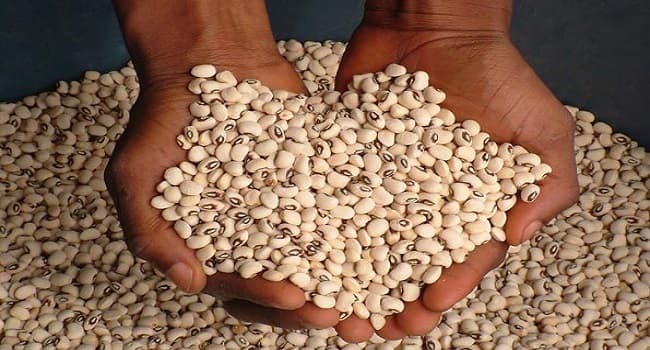We're loading the full news article for you. This includes the article content, images, author information, and related articles.
Agriculture Cabinet Secretary Mutahi Kagwe's proposal to charge sellers of counterfeit seeds with treason, a crime punishable by death, ignites a fierce debate on the appropriate legal response to a crisis threatening Kenya's food security.

NAIROBI – In a move that could dramatically escalate the fight against counterfeit agricultural inputs, Kenya's government has controversially proposed charging distributors of fake seeds with treason. Speaking in Nyeri on Wednesday, November 5, 2025, Agriculture and Livestock Development Cabinet Secretary Mutahi Kagwe declared the sale of counterfeit seeds an act of "economic sabotage" that warrants the nation's most severe charge.
“Anyone selling fake seeds is deliberately sabotaging the country. You are risking a national food crisis,” Mr. Kagwe stated during the launch of new Kenya Plant Health Inspectorate Service (KEPHIS) facilities. “That is economic sabotage, and it should be treated as treason. We will immediately arrest those involved.”
The declaration signals a potential new front in the government's efforts to protect the agricultural sector, the backbone of Kenya's economy. However, it also raises profound legal and constitutional questions about the application of a charge historically reserved for acts against the sovereignty of the state.
Under Kenyan law, treason is the most serious offence against the state. Section 40 of the Penal Code defines treasonous acts to include levying war against the Republic, attempting to harm or overthrow the President or the government by unlawful means, or aiding enemies of the state. The prescribed punishment is death. Historically, treason charges in Kenya have been rare and politically charged, most notably following the 1982 coup attempt.
Legal analysts question whether the act of selling counterfeit seeds, while deeply damaging, meets this high threshold. The existing legal framework provides for offences that more closely match the crime. The Anti-Corruption and Economic Crimes Act and the Penal Code's provisions on sabotage (Section 343) address crimes involving willful and unlawful damage to property essential to the life of the community, which could include the agricultural supply chain. An “economic crime” is defined as an offence involving dishonesty related to the protection of public revenue.
This is not the first instance of a high-ranking official equating economic crimes with treason. In January 2022, former President Uhuru Kenyatta warned that vandalism of critical infrastructure was a "treasonable act" of economic sabotage. This suggests a political pattern of using the gravity of the term 'treason' to underscore the severity of economic offences that threaten national stability.
The government's hardline stance is rooted in the devastating impact of counterfeit seeds on Kenya's food security and economy. The agricultural sector is central to the nation's livelihood, and the proliferation of fake inputs poses a direct threat. Reports indicate that counterfeit seeds and fertilizers can reduce crop yields by 30-50%, costing the agricultural sector an estimated Ksh 10 billion annually. This not only cripples smallholder farmers, who form the majority of Kenya's food producers, but also jeopardizes the national food supply.
Organizations like KEPHIS and the Anti-Counterfeit Authority are on the front lines of this battle, conducting surveillance and enforcement operations. However, officials have expressed frustration with what they see as lenient penalties for offenders. KEPHIS Managing Director, Prof. Theophilus Mutui, has previously highlighted cases where traders caught with millions of shillings worth of counterfeit seeds received fines as low as Ksh 100,000, arguing for harsher legal deterrents.
The debate is further complicated by the proposed Seeds and Plant Varieties (Amendment) Bill 2025, which KEPHIS has warned could weaken its regulatory oversight and potentially open the floodgates to more counterfeit products by introducing a dual certification system.
The proposal to use treason charges for what is fundamentally an economic and regulatory issue is a contentious strategy. Proponents argue it reflects the existential threat that food insecurity poses to national security, a link recognized in Kenya's National Food and Nutrition Security Policy. The Constitution of Kenya, under Article 43, guarantees every person the right to be free from hunger and to have adequate food of acceptable quality, placing a direct responsibility on the state to protect its food systems.
However, critics warn of potential overreach and the risk of setting a dangerous legal precedent. Expanding the definition of treason could have far-reaching implications for the justice system and civil liberties. The focus, they argue, should be on strengthening existing laws, enhancing enforcement mechanisms like those under the Public Order Act and the Economic Crimes Act, and ensuring regulatory bodies like KEPHIS are adequately empowered and funded to eliminate counterfeit products from the market.
As the national crackdown on fake seeds intensifies, the country will be watching closely to see whether this is a moment of rhetorical flourish to signal seriousness, or the beginning of a fundamental and controversial shift in legal policy that could redefine the boundaries of national security in Kenya.
Keep the conversation in one place—threads here stay linked to the story and in the forums.
Sign in to start a discussion
Start a conversation about this story and keep it linked here.
Other hot threads
E-sports and Gaming Community in Kenya
Active 9 months ago
The Role of Technology in Modern Agriculture (AgriTech)
Active 9 months ago
Popular Recreational Activities Across Counties
Active 9 months ago
Investing in Youth Sports Development Programs
Active 9 months ago
Key figures and persons of interest featured in this article